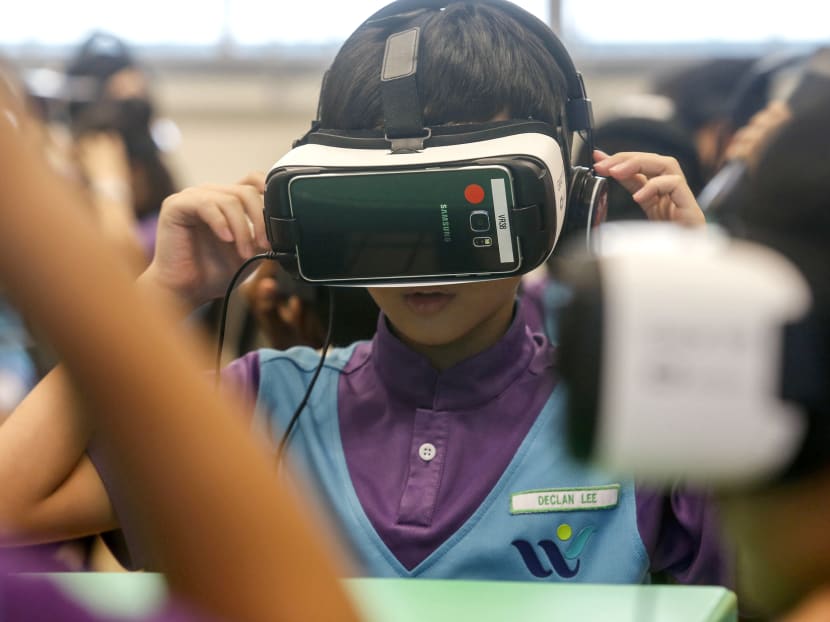Schools, hospitals can pave the way for use of VR as learning tools
SINGAPORE — With digital technology being a key driver of growth for Singapore, schools and hospitals can pave the way to use virtual reality (VR) or augmented reality technologies as learning tools.

The use of VR as a teaching tool for the Social Studies syllabus has been piloted in five primary schools. Photo: Najeer Yusof/TODAY
SINGAPORE — With digital technology being a key driver of growth for Singapore, schools and hospitals can pave the way to use virtual reality (VR) or augmented reality technologies as learning tools.
More can also be done to tap such immersive media across various industries to improve processes, reduce costs and enhance outcomes, with possibilities to apply them in the retail, architecture, construction and defence sectors.
Communications and Information Minister Yaacob Ibrahim raised these points during his speech at the Infocomm Media Business Exchange conference held at the Marina Bay Sands Singapore Convention Centre, as he made key announcements on the approaches to take to support Singapore’s digital transformation.
The use of VR as a teaching tool for the Social Studies syllabus has been piloted in five primary schools, namely Beacon Primary School, CHIJ Our Lady of Good Counsel, Fuhua Primary School, Montfort Junior School and West Spring Primary School.
About 400 pupils in Primary 4 and 5 learnt about the early settlers of Singapore and how they contributed to the early designs of buildings, by viewing landmarks such as the Geylang Serai Market through VR. They also “explored” farmers’ use of high-tech machines and creative cultivation methods, in places such as an offshore fish farm, vegetable farm and dairy farm.
West Spring Primary School teacher Parameshwari Selvaraja said that with the VR tool, pupils were able to explore some of the more inaccessible farms, and they can cover more farms during lessons.
“We also reduced the costs that we would have incurred with such site visits. It is also better than videos. They are really able to explore the place with 360° views while wearing the goggles.”
However, she agreed that nothing beats getting the real-life experience “in some aspects”, because the children would have to engage more senses such as smell and touch.
Dr Yaacob said plans are also in the works to use VR in clinical training at Tan Tock Seng Hospital, via a collaboration with the Infocomm Media Development Authority (IMDA).
“Traditional clinical training is resource-intensive and costly, and might not be able to replicate scenarios realistically. This collaboration will develop immersive simulations for basic surgical skills and complex airway management, which is critical in life-threatening emergencies,” he said.






